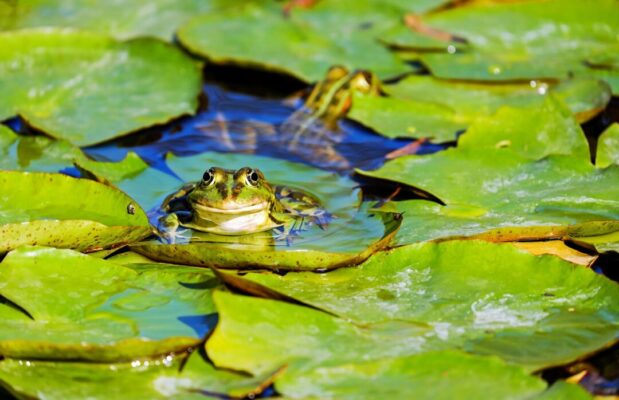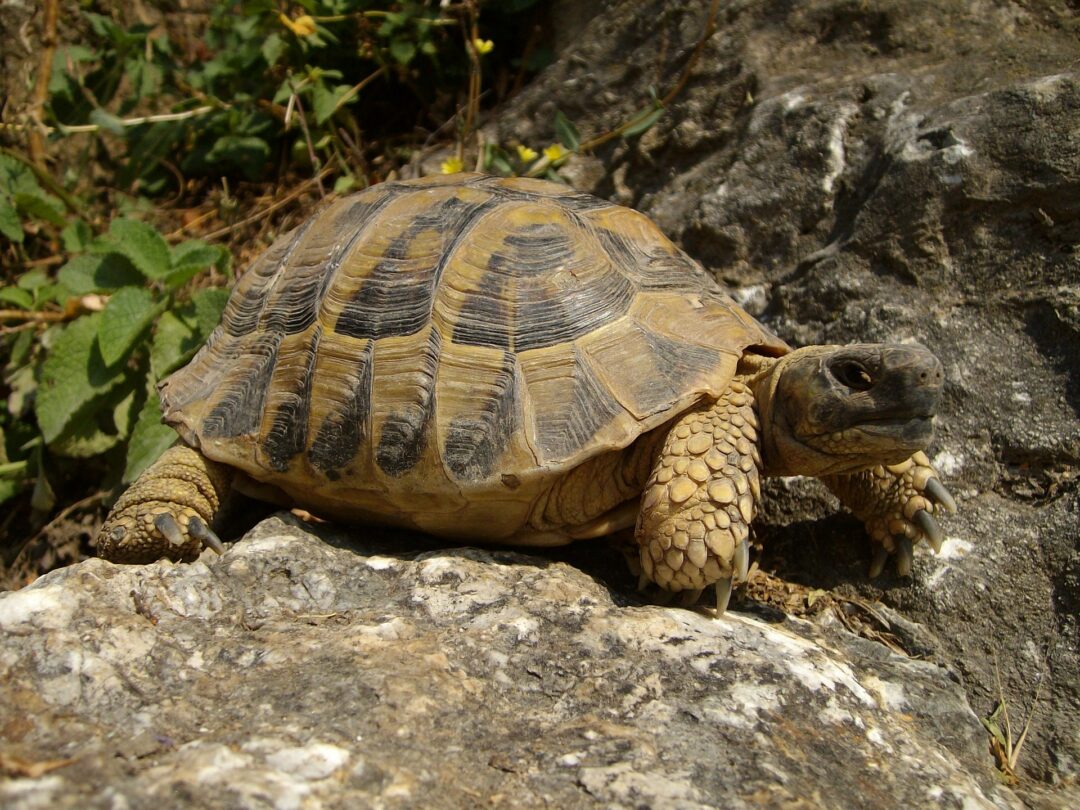Turtles are known for being herbivores or omnivores, but what about frogs? Do turtles eat frogs?
In this article, we will explore the dietary habits of turtles and determine whether they eat frogs or not.
Turtle Diet
Turtles are known to eat a variety of food items, depending on the species.
Some turtles are strictly herbivores and feed on plants, while others are omnivores and eat both plants and animals.
Terrestrial turtles tend to eat insects, earthworms, snails, and other small animals. Aquatic turtles, on the other hand, feed on fish, crustaceans, and aquatic plants.
Do Turtles Eat Frogs?
The answer to the question of whether or not turtles eat frogs is not a straightforward one.
Some species of turtles, such as the slider turtle, are known to eat frogs, while others may not.
Whether or not a turtle will eat a frog depends on several factors, including the size of the turtle, the size of the frog, and the availability of other food sources.
For example, a large turtle, such as the alligator snapping turtle, may be able to eat a frog, while a smaller turtle, like the box turtle, is unlikely to do so.
The frog size is also a factor, as a turtle may not be able to eat a large frog but may be able to consume smaller frogs or tadpoles.
Additionally, the availability of other food sources may play a role in whether or not a turtle will eat a frog. If plenty of other food options are available, a turtle may not be interested in eating a frog.
It is important to note that while some species of turtles may eat frogs, it is not a natural or necessary part of their diet.
Turtles that are kept in captivity and provided with a balanced diet of insects, vegetation, and other food items should not need to eat frogs.
However, if you choose to feed your turtle a frog, it is essential to ensure that it is not poisonous and has been properly cleaned and prepared.
Safety Precautions
When considering feeding a frog to your turtle, it’s important to remember some important safety precautions.
Firstly, feeding frogs regularly is not recommended as they have less nutritional value compared to other food options like crickets and can cause digestive issues if consumed too frequently.
Additionally, some frogs contain harmful skin secretions or toxins that can harm your turtle’s health, so it’s advisable to consult with a veterinarian before feeding.
When feeding a frog to your turtle, make sure to choose a small frog that’s no larger than 1/3 of the turtle’s length and never leaves them unattended.
Rinse the frog thoroughly and drop it into the water to help your turtle associate it with food.
If the turtle eats the frog too quickly, use tweezers to gently remove it and ensure the turtle can breathe and swallow safely.
Remember, feeding live food should be limited to occasional treats and not a regular habit.
Observe your turtle closely for any signs of difficulty and seek help from a vet if necessary.
Can I keep A Frog With A Turtle?

Turtles and frogs are not compatible as cohabitants. Turtles have a tendency to view frogs as a food source and may attack and harm them.
Furthermore, turtles generally prefer to live alone and may not tolerate the presence of another species.
Keeping these two animals in the same environment can lead to stress and harm to both.
It is advised to provide separate habitats for the well-being of both species.
Conclusion
Whether or not turtles eat frogs depends on the turtle species.
Some species, such as the common snapping turtle and the red-eared slider, are known to eat frogs as part of their diet, while others, such as box turtles, do not.
It is essential to research the specific species of turtle to determine what kind of diet they require.
Related Articles:

